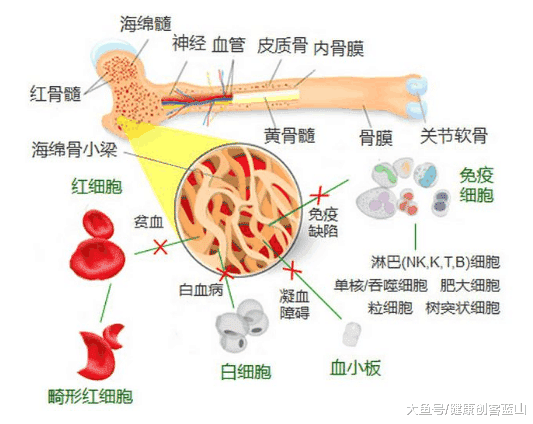日本广岛大学 毒素和缺氧是多发性骨髓瘤的重要因素 Myeloma Cells are Activated in Bone Marrow Microenvironment by the CD180/MD-1 Complex which Senses Lipopolysaccharide
引起多发性骨髓瘤的三大原因有环境因素、染色体因素以及辐射因素,
原标题:骨髓细胞在骨髓微环境中被CD180/MD-1复合物激活,该复合物负责检测脂多糖
多发性骨髓瘤(MM)细胞在低氧微环境中通过与骨髓基质细胞(BMSC)的相互作用获得休眠和耐药性。
多发性骨髓瘤(MM)细胞在低氧微环境中通过与骨髓基质细胞(BMSC)的相互作用获得休眠和耐药性。
阐明休眠克隆再生的机制可能有助于进一步改善MM患者的预后。在本研究中,我们发现非标准细菌毒素毒素脂多糖(细菌LPS)受体CD180/MD-1复合物在MM细胞上表达,而在正常细胞上没有表达,且在贴壁缺氧条件下丰度显著上调。
细菌LPS和抗CD180抗体,而非其他TLR配体,通过激活MAP激酶ERK和JNK,增强MM细胞的生长,与CD180的表达水平呈正相关。
在小鼠异种移植模型中,当MM细胞直接与BMSC连接接种时,LPS可显著增加CD180/CD138双阳性细胞的数量。CD180的敲除取消了LPS在体内和体外的反应。启动子分析确定IKZF1 (Ikaros)是CD180基因关键的转录激活因子。
通过增加Ikaros表达及其与启动子区域的结合,细胞粘附和缺氧激活了CD180基因的转录。免疫调节药物lenalidomide对Ikaros的药理靶向作用在体外和体内均改善了MM细胞对LPS的响应,其依赖于cd180。
多发性骨髓瘤(MM)是一种恶性浆细胞病,其肿瘤细胞起源于骨髓中的浆细胞
因此,CD180/MD-1通路可能是MM细胞在BM环境下生长调控的一种新机制,可能是阻止休眠MM细胞再生的治疗靶点。
收到2017年8月14日。
2017年12月3日修订。
接受了2018年1月19日。
版权©2018,美国癌症研究协会。
Myeloma Cells are Activated in Bone Marrow Microenvironment by the CD180/MD-1 Complex which Senses Lipopolysaccharide
Jiro Kikuchi, Yoshiaki Kuroda, Daisuke Koyama, Naoki Osada, Tohru Izumi, Hiroshi Yasui, Takakazu Kawase, Tatsuo Ichinohe and Yusuke Furukawa
DOI: 10.1158/0008-5472.CAN-17-2446
ArticleFigures & DataInfo & Metrics PDF
Abstract
Multiple myeloma (MM) cells acquire dormancy and drug resistance via interaction with bone marrow stroma cells (BMSC) in a hypoxic microenvironment. Elucidating the mechanisms underlying the regrowth of dormant clones may contribute to further improvement of the prognosis of MM patients. In this study, we find that the CD180/MD-1 complex, a non-canonical LPS receptor, is expressed on MM cells but not on normal counterparts, and its abundance is markedly upregulated under adherent and hypoxic conditions. Bacterial LPS and anti-CD180 antibody, but not other TLR ligands, enhanced the growth of MM cells via activation of MAP kinases ERK and JNK in positive correlation with expression levels of CD180. Administration of LPS significantly increased the number of CD180/CD138 double-positive cells in a murine xenograft model when MM cells were inoculated with direct attachment to BMSC. Knockdown of CD180 canceled the LPS response in vitro and in vivo. Promoter analyses identified IKZF1 (Ikaros) as a pivotal transcriptional activator of the CD180 gene. Both cell adhesion and hypoxia activated transcription of the CD180 gene by increasing Ikaros expression and its binding to the promoter region. Pharmacological targeting of Ikaros by the immunomodulatry drug lenalidomide ameliorated the response of MM cells to LPS in a CD180-dependent manner in vitro and in vivo. Thus, the CD180/MD-1 pathway may represent a novel mechanism of growth regulation of MM cells in a BM milieu and may be a therapeutic target of preventing the regrowth of dormant MM cells.
Received August 14, 2017.
Revision received December 3, 2017.
Accepted January 19, 2018.
Copyright ©2018, American Association for Cancer Research.
http://cancerres.aacrjournals.org/content/early/2018/01/23/0008-5472.CAN-17-2446



.png)